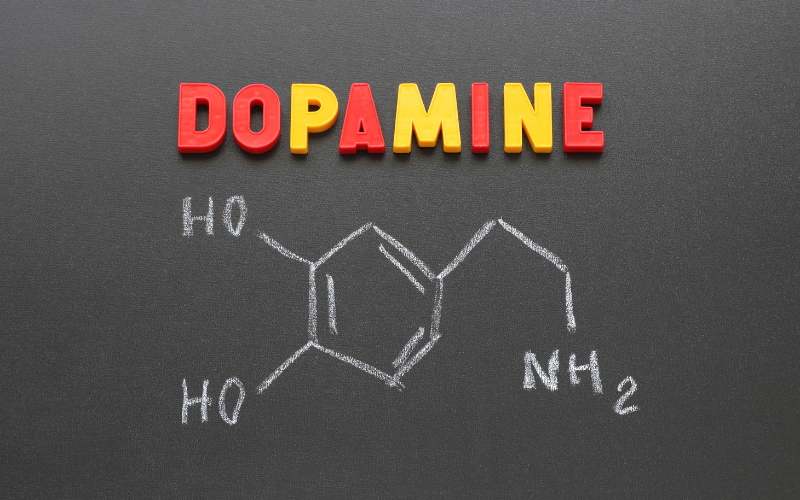Have you ever wondered why some days you feel on top of the world, while other days you just can’t seem to shake off the blues? The answer to this enigma lies in the interplay of various hormones in our body, that play a vital role in regulating our mood, emotions, and overall well-being. In this article, we will delve into the hormones that make you happy, including dopamine, cortisol, endorphin, serotonin, and oxytocin, and explore ways to trigger them to boost your happiness levels.
Dopamine – The Hormone of Pleasure
Dopamine is a neurotransmitter that is released in response to pleasurable stimuli and plays a significant role in regulating our mood and motivation. It is often referred to as the “feel-good” hormone, and a deficiency in dopamine can lead to depression, anxiety, and a lack of motivation.
How to Trigger Dopamine Release
- Exercise: Regular physical activity releases dopamine, making you feel more energized and positive.
- Eating Healthy: Eating nutrient-rich foods that are high in protein, such as lean meats and legumes, can boost dopamine levels.
- Engage in Hobbies: Engaging in activities that you enjoy, such as playing a musical instrument or painting, can release dopamine.
- Connect with Others: Spending time with loved ones and forming meaningful relationships can trigger the release of dopamine.
Cortisol – The Stress Hormone
Cortisol is a hormone released by the adrenal gland in response to stress. While cortisol is essential for survival in the short-term, long-term elevated cortisol levels can lead to various health problems, including anxiety and depression.
How to Reduce Cortisol Levels
- Physical exertion: Regular physical activity can reduce cortisol levels, making you feel more relaxed and calm.
- Get Enough Sleep: A good night’s sleep is essential for reducing cortisol levels and keeping stress at bay.
- Practice Relaxation Techniques: Meditation, deep breathing exercises, and yoga can help to reduce cortisol levels.
- Connect with Nature: Spending time in nature, such as going for a walk in the park, can reduce cortisol levels and help you feel more relaxed.
Endorphin – The Pain-Reliever
The hormone endorphin functions as a neurotransmitter with pain-relieving properties. Historically, this substance assisted our forebears in summoning their full physical prowess to evade threats or engage in combat. In modern times, it continues to fuel our bodies through challenging exercise regimens, even when our willpower may falter. Endorphins are the elixir that creates a giddy, euphoric feeling, leaving us with a lightheaded sensation. The simultaneous release of dopamine and endorphins, as a result of vigorous physical activity and consumption of piquant cuisine, results in an adrenaline high often referred to as “runner’s high”. This phenomenon is characterized by a thrilling surge of joy, often experienced after intense physical activity or workout sessions.
How to Trigger Endorphin Release
- Training: Regular physical activity, such as running, can trigger the release of endorphins, making you feel more positive and energized.
- Laugh: Laughter is known to trigger the release of endorphins, so spend time with friends and family and engage in activities that make you happy and laugh.
- Eat Spicy Foods: Eating spicy foods can trigger the release of endorphins, providing a natural boost to your mood.
- Get a Massage: A relaxing massage can trigger the release of endorphins, making you feel more relaxed.
The “Love Hormone” Oxytocin
The “Love Hormone” Oxytocin is known as the
“love hormone” as it’s released during physical touch, intimacy, and bonding with others. It’s also known to enhance feelings of trust and happiness. To trigger oxytocin naturally, try the following:
- Make connections: Spending time with loved ones, hugging, and physical touch can trigger oxytocin production and improve our mood.
- Practice gratitude: Focusing on the things we’re grateful for can trigger oxytocin production and improve our overall well-being.
- Give back: Volunteering and helping others can also trigger oxytocin production and improve our mood.
Serotonin – The “Happy Hormone”
Serotonin is known as the “happy hormone” as it regulates our mood, sleep, and appetite. Low levels of serotonin can lead to depression and anxiety. To trigger serotonin naturally, try the following:
- Get enough sunlight: Sunlight helps regulate serotonin levels and improve our mood.
- Eat a healthy diet: Consuming foods rich in tryptophan, such as eggs, cheese, and nuts, can help increase serotonin levels.
- Exercise regularly: Regular physical activity has been shown to increase serotonin levels and improve our mood.
Oxytocin – The “Love Hormone”
Oxytocin is known as the”love hormone” as it’s released during physical touch, intimacy, and bonding with others. It’s also known to enhance feelings of trust and happiness. To trigger oxytocin naturally, try the following:
- Connect with others: Spending time with loved ones, hugging, and physical touch can trigger oxytocin production and improve our mood.
- Practice gratitude: Focusing on the things we’re grateful for can trigger oxytocin production and improve our overall well-being.
- Give back: Volunteering and helping others can also trigger oxytocin production and improve our mood.

FAQs:
Q: How often should I trigger these hormones to feel happier?
A: There’s no set frequency for triggering these hormones, as it will vary for each person. However, incorporating healthy habits into your daily routine, such as exercise, healthy eating, and spending time with loved ones, can help naturally trigger these hormones and improve your overall well-being.
Q: Can triggering these hormones have any negative effects?
A: In general, triggering these hormones naturally through healthy habits and behaviors will not have negative effects. However, if you have any health conditions or concerns, it’s always best to consult with a healthcare provider before making any changes.
By understanding the “Hormones That Make You Happy” – dopamine, endorphin, serotonin, and oxytocin, we can take control of our happiness and improve our overall well-being. Incorporating healthy habits into our daily routine, such as exercise, healthy eating, and connecting with loved ones, can help trigger these hormones naturally and enhance our mood. So, go ahead, give it a try, and see the positive effects it has on your happiness and well-being!




